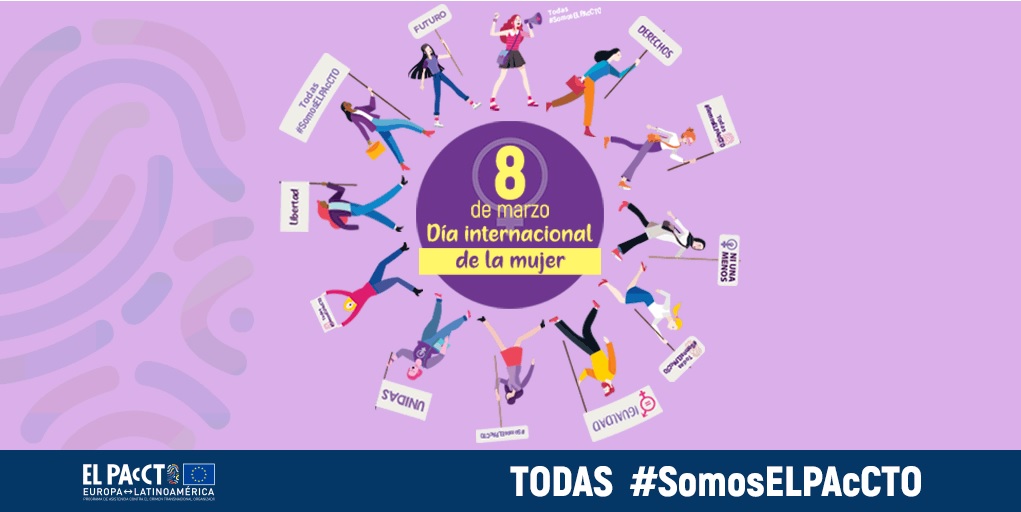This year marks 25 years since the adoption of the United Nations Beijing Declaration and Platform for Action. A global gender equality roadmap that defined 12 broad fronts on which to work for the empowerment of women and girls.
Since then, improvements in women’s lives have been evident in some countries, but there are also many barriers that we have been unable to overcome. Women earn less than men, a third of us experience physical or sexual violence, and gaps in reproductive rights and health care kill 800 women every day in childbirth, according to UN Women data.
The European Union committed to equality
At European level, the problems are similar to those in the rest of the world. The EU recognises that Europe is one of the safest and most egalitarian places in the world for women, but it is confronting major challenges, such as the pay gap and violence against women.
According to EU data, one in three women has suffered physical or sexual violence since the age of 15. To end this scourge, in 2011 all the EU Member States, as well as the European Union itself, signed the Istanbul Convention, that obliges countries to prevent and penalise all forms of violence, protect victims and prosecute perpetrators.
The situation of women in Latin America
According to the UN, in Latin America more than nine women a day die as victims of male violence. The United Nations says that Latin America is the most violent region in the world for women outside the context of war. Worrying. According to an analysis by the Economic Commission for Latin America and the Caribbean (ECLAC), 3,287 women were victims of femicide in 2018.
With these data, and according to ECLAC, a woman is murdered in Latin America every two hours. The contradiction in the region is significant. Although in Latin America women have achieved the highest rates of female political participation in the world, at the same time it is the region with the highest murder rates of women.
According to some ECLAC surveys, women are perceived as good managers, more effective, more committed and more understanding. There is favourable opinion in Latin America towards female leadership, but, as in the rest of the world, women continue to occupy far fewer positions of responsibility than men. This is the key.
In my opinion, more women in positions of responsibility at the forefront of the struggle against organised crime in Latin America would open the door to other women. In addition, it would guarantee the female viewpoint of victims, female perpetrators, witnesses, etc., so important to developing public policies that strengthen the fight against crime. It would also be an example for girls in schools, where they are striving to prevent school dropouts and where the foundations for equality are laid.
THE EL PAcCTO COVENANT and the gender viewpoint against crime
The European Union is committed to women and gender equality, also in Latin America. This is where our EL PAcCTO work comes in, a task which, from the perspective of fighting transnational organised crime (TOC), also aims to ensure that no woman is left behind. How? By incorporating the gender perspective in policies related to strengthening the European and Latin American fight against TOC.
It is worth highlighting the study on gender and organised crime in Latin America, which EL PAcCTO commissioned from an Argentine expert in 2018. Some of the conclusions are decisive in addressing the issue. For example, there are differences in concepts between countries, difficulty in distinguishing between victim and victimiser, few reliable statistics, and the refusal of academics to study the role of women as perpetrators of crimes.
In El Salvador, in 2019, we organised a workshop on gender and gangs with the participation of EUROsociAL + to consider the role of women in criminal organisations. A pioneering work with conclusions that will serve as the basis for other EL PAcCTO activities with a gender focus.
Also important is the effort being made by some Latin American countries to end human trafficking, with the support of EL PAcCTO. This year could be decisive, with the implementation of Specialist Multidisciplinary Teams in this type of crime.
In addition, in late March we will hold a workshop in Buenos Aires on the international protection of witnesses within Mercosur and associated states. Representatives from Argentina, Bolivia, Brazil, Chile, Paraguay and Uruguay will be present. We will also have the collaboration of SPOTLIGHT, the UN and European Union initiative for protecting women and girls from violence.
Our objective is to increase the gender perspective in all our activities, including their design and orientation. We are convinced that we cannot guarantee the safety of citizens as long as there is gender discrimination. For this reason, we are committed to equality and the eradication of all types of violence against women.
I belong to the Equality Generation
It is time to renew the Beijing commitment and to align ourselves with the gender policies of the European Union. Also to work to achieve objective 5 (gender equality) of the 2030 development agenda.
I belong to the Equality Generation and today, like every day, I want all women to be free to choose. So that no girl is condemned to being a victim. Let’s break ceilings and barriers to simplify the most obvious: all women and men equal, in a safer society working against crime.
María Jesús Martín, head of communications of EL PAcCTO
